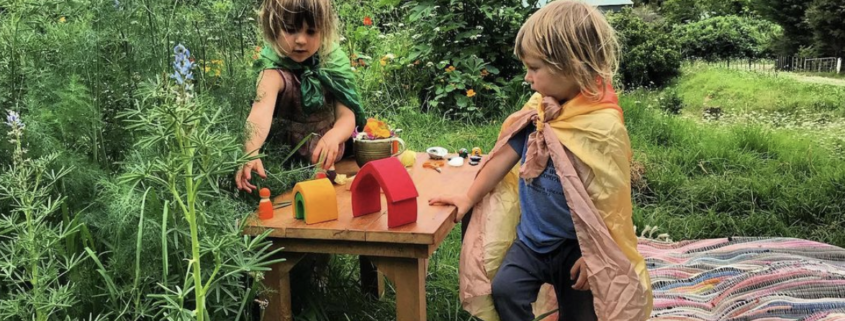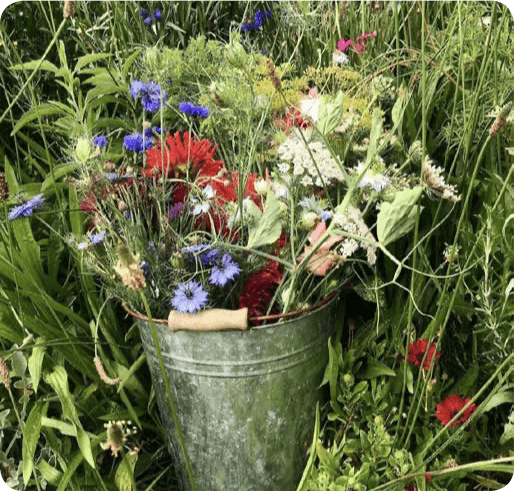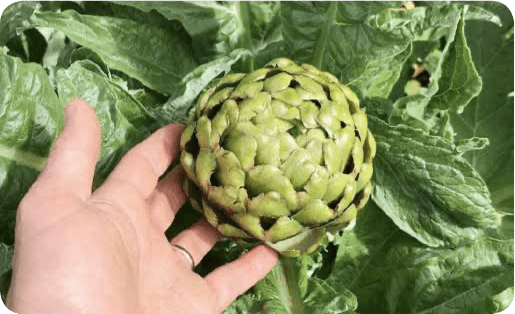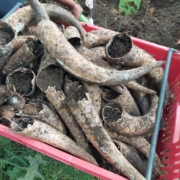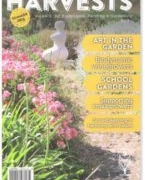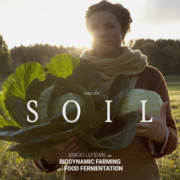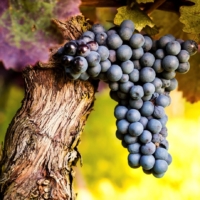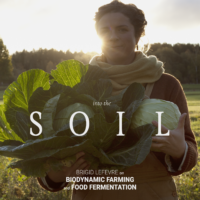Biodynamics In Action at Ipuwai Farm
Harvest Article – Spring 2021
Below is an excerpt from the Spring 2021 issue of Harvests Magazine, written by Rachael Ewings. In Harvests, we share biodynamic stories from around Aotearoa, New Zealand and beyond. To get your hands on a copy of Harvests – and loads of other perks – become a member of Biodynamics New Zealand.
Ipuwai Farm is nestled in the bush at the foot of the Mungamuka mountains, just south of Kaitaia, in a small farming town called Takahue. Ipuwai is a Māori word for a vessel of water, or drinking gourd. We chose the name for the abundance of water on this land. Ipuwai has pure water running out of the hills that surround it. This land is made up of a little valley with hills covered in bush, and we are at the headwaters, meaning we are the last settlement before you enter the Mungamuka mountain range. Ipuwai is a small diversified family farm. We have been here for six years, and there are six adults and five children residing on the land. This changes seasonally, with wwoofers and family members coming and going.
We steward a 93-hectare paradise. Most of the land is bush, with about 25 hectares in pasture, horticulture and living space. We have multiple gardens which serve different purposes. My most recent project has been to grow flowers amongst our veges and orchards in the summer. I go to the Kaitaia farmers market to sell my flower bouquets, dried flower baths, teas and balms, along with any extra produce we may have. It has been exciting and enlightening to get to know the farmers market community here in Kaitaia, and I am grateful to be a part of that experience off the farm.
All of our buildings are off the grid, with solar and hydroelectric power. The animals on the land include a small herd of cows, Arapawa sheep and chooks. We have beehives in two areas: up top in the bush and down below by the drive. We are working with a local apiarist who is teaching us how to care for the bees and harvest their honey. Our family is experimenting to see which animals work best with this land. We also share the space with the wild animals and birds. They in turn allow space for us humans; it is a mutualistic relationship, in harmony with nature.
Living Biodynamics
I strive to use biodynamic and permaculture techniques in the gardening and care for animals here. We source all of our preparations from the Biodynamic society of New Zealand. Some day we will be able to grow and create our preparations and sprays here at Ipuwai. In the garden and orchards we follow the biodynamic calendar (and our deep intuition) for planting, transplanting, applications of preparations and remedies, pruning and harvesting. We also follow the rhythms of the moon very closely when it comes to our seeding and harvesting. I continue to remain humble with a transparent eye, a child’s outlook on this journey, to bridge the heavens with the earth through farming. My personal biodynamic journey began when I was a small child in the mountains of North Eastern America. My mother and father would make teas for the garden, that is when I first began to feel the pull of the preparations. My parents were unaware that they were gleaning from Steiner’s intentions at that time although they were completely rooted in his philosophies on an intuitive level . Later on, as I finished my teacher training at Taruna college I had the great fortune to work with the legend, Peter Proctor. He taught me how to make the preps and when to bury the horns, I became completely infatuated and I felt a piece of my soul kindle with remembrance. It was as if I was tapping into a cellular memory, locked down deep in my ancestry. From that moment on I was hooked. Biodynamics speaks to who I am deep in my soul.
Follow Rachael on Instagram @ipuwai.farm
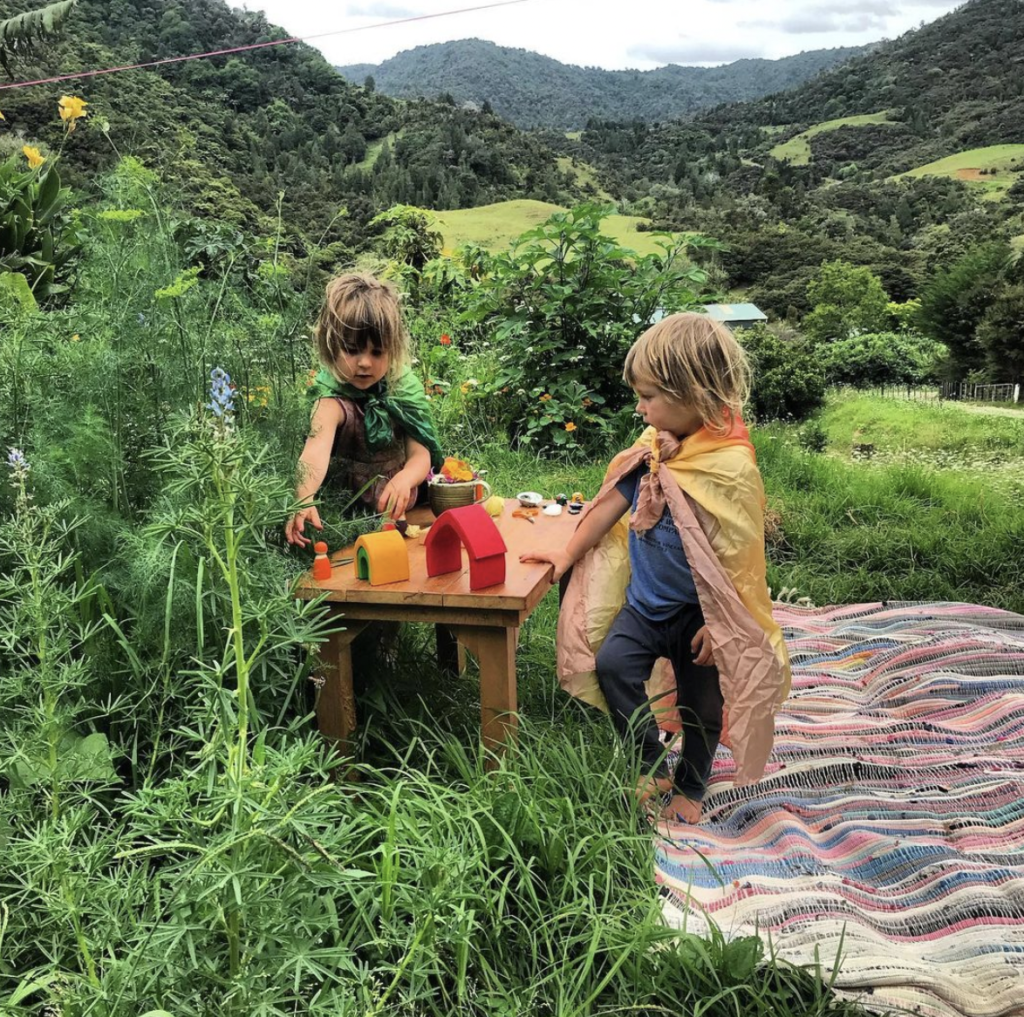
I continue to come back for more with biodynamics because it holds the vision of the farm as a whole organism. Biodynamics cultivates biodiversity and brings plants and animals together in a holistic way. These farming practices also support integrity and biodiversity in seeds and breeds. But the ‘golden egg’ of biodynamics for me is the way it encourages us humans to work in rhythm with the Earth and cosmos. We are the bridge between the heavens and the Earth. In relation to that, I am inspired by how the preps directly enhance soil vitality. This ancient method of farming really works! These principles speak to my family’s philosophy around caring for the soil, plants, animals and ourselves.
Permaculture perspectives
We also practice permaculture here at Ipuwai, simply because it makes good sense. Permaculture and biodynamics are like sisters; they go hand in hand elegantly. Bill Mollison, David Holmgren and Geoff Lawton are amazing wells of knowledge and support for me on the permaculture path. I have taught permaculture with my dear friend back Stateside, and in the future we would like to hold workshops here at Ipuwai. We have extensive food forests in early establishment on the property. Our family continues to build out the guilds around trees in hopes of one day covering the land with an edible landscape. This will promote abundance and food security and allow us to give back to Papatūānuku.
My advice for the beginner is to remain curious, keep your beautiful childlike nature about you and be observant, taking your time. If you are wondering about biodynamics or any other farming method, start small and do little experiments in your garden. Borrow a pinch of preparation 500 or 501 off a friend and have some fun dynamising it in a bucket of rainwater, delve deep while you stir, meditate and feel your connection to the practice.
Horsetail tea is wonderful to experiment with. This tea, when applied early on in the seedling’s life, can help prevent fungal diseases and balances the watery element in plant and soil.
You can see results rapidly if this tea is used at the right time with the correct application. This is a great tea to start with.
Permaculture offers useful ways to think about your systems, whether you are beginning on your gardening/farming journey or you are a seasoned veteran. I highly recommend looking into the 12 principles of permaculture. You can start there and be inspired by the abundant amount of knowledge permaculture has to offer. Permaculture can offer a wealth of guidance around building systems on your farm or garden that allow for extreme efficiency and productivity. The beginning is always special; I believe there are infinite possibilities in a starting place.
Currently on the farm we are planning for more sustainable buildings for housing and food storage, selective felling of trees for timber, native planting, extensive food forest planting, terracing and earthworks, swales and keyline ploughing to allow proper water movement, subtropical orchards and alley crop plantings with berries and nuts. We are also looking to build a permanent home for our chooks using a deep litter mulch system.
Wood chipping for soil life
Recently we have been getting excited about compost tea, ramial wood chipping and encouraging the mycorrhizal fungi in our soil. A key component to the health of most plants is the symbiotic relationship between mycorrhizal fungi and plant roots. Ramial chips help the mycorrhizal fungi thrive.
We use our deciduous trees’ autumn prunings with 1-3 inch diameters, with or without leaves, to make the wood chips. A fairly high percentage of their mass is thin young bark, young wood and sometimes leaves. We are using ramial wood chips in order to promote a fungal-dominant soil and to nourish the soil foodweb from the bottom up. With these chips we can imitate the forest edge ecology to encourage fertility and build carbon and fungal soils in our garden and orchards!
One of our greatest challenges at the moment is to only utilise what’s available on this land for carbon and plant nutrients. We are ultimately working towards a self-sufficient lifestyle with a positive impact on the world around us. We also struggle with time available to work on the farm, with
so many young children to care for and adults working away from the farm. These challenges are always morphing, and as Bill Mollison says, “The problem is the solution.” Our dream is to supply healthy, nutrient-dense foods and products to the greater community near and far.
To bring it full circle, I am incredibly grateful for the water.
We are fortunate to be on this land where water is abundant. Water is vitality, and we are in a space full of this life force. It allows us to grow beautiful produce, keep our animals alive and healthy and nourish our own bodies. The vegetables we feed with this water in turn provide our bodies with nutrient- dense food. Water is everything at Ipuwai, and it’s a big part of why we are here in this moment in time.

